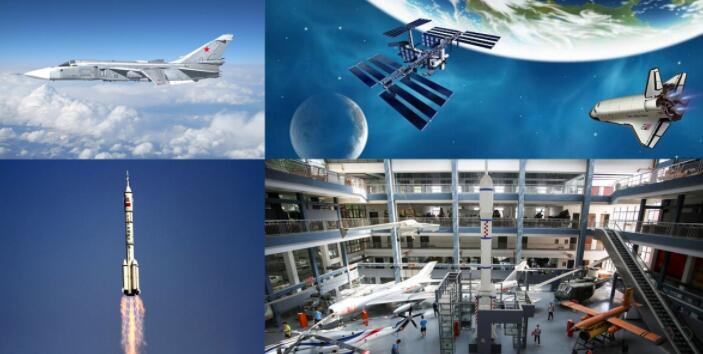Titanium was discovered in 1791 and has been a popular product in the metallurgical manufacturing industry ever since. It wasn't until the beginning of the Cold War that titanium began to make its way into the military and aerospace industries. Fast forward to today and substances such as titanium tubing are a staple of the aerospace industry due to the high value of its alloyed products.
Titanium has many properties that make it a coveted item in the aerospace field. Some of these properties include its high strength-to-weight ratio, excellent corrosion resistance and performance at very high temperatures. The industry is always looking for ways to produce lighter, more fuel-efficient aircraft. Fortunately, titanium provides the strength and durability that aircraft manufacturing companies need to achieve this goal without adding additional weight.
Here, we'll learn about the most common applications for titanium in aerospace. But before we get started, let's consider the key properties of titanium that make it so valuable in aircraft manufacturing.

Compared to steel and aluminum, titanium is much lighter in weight. As a result, it provides the strength and durability needed to construct aircraft with high fuel efficiency without adding additional weight. The only lightweight metal suitable for composite materials is titanium.
Because of their light weight, composites in aeronautical engineering are beneficial. They are important for fuel efficiency because the heavier the aircraft, the more fuel it consumes. Many composites containing aluminum and other metals are not as light as titanium, making it the first choice for aircraft composite structures.
A distinguishing characteristic of titanium is its high-temperature performance, a property that makes it highly reliable at different temperatures, as well as an excellent interface material. Its ability to withstand high temperatures also makes it a better alternative to aluminum.
Corrosion resistance is very important in the aerospace industry. Titanium has a natural resistance to corrosion elements, so there is no need to cover titanium with special corrosion resistant coatings unless titanium is used in an alloy. In the long run, titanium is a good choice when extending the life of an aircraft becomes a priority.
The following are some of the applications of titanium in aerospace.
As we mentioned earlier, titanium is an excellent choice for lightweight materials. Other than steel and aluminum alloys, titanium is the best lightweight structural material widely used in aircraft manufacturing. It is one of the reasons Boeing has designed and marketed so many fuel-efficient aircraft (including rotary-wing aircraft, rockets, satellites and missiles) around the world for many years.
Titanium is an important structural material for aircraft fuselages and engines. Because it is a lightweight titanium alloy, it offers excellent weight reduction when used as a body material. Even in the coming years, the use of titanium alloys in commercial and military aircraft is thought to continue to rise.
High-temperature titanium alloys are used in the manufacture of aircraft engine compressor blades, discs and casings. This is because these components are typically exposed to higher temperatures than other components in an aircraft. As a result, they require materials with high specific strength and resistance to temperature creep, as well as high fatigue strength and high temperature operating conditions (typically around 572-1112°F). In these components, the durability and high-temperature properties of titanium come into play.
Titanium tubing is another major product used by the aircraft manufacturing industry. In addition to the aircraft industry, titanium tubing is increasingly used in many applications where other materials such as stainless steel and aluminum do not work well in many cases. Titanium tubing has a higher strength-to-weight ratio and corrosion resistance, making it a suitable product for the aerospace industry and heat exchangers.
One of the main concerns of the aerospace industry when working with titanium alloys is the advanced welding process for titanium alloy structures. Laser welding of titanium alloys is another area of high interest in the aerospace manufacturing industry.
Since the early 1960s, electron beam welding, an advanced high-energy beam processing method, has been applied to the welding of economically significant metals in the aircraft manufacturing and aerospace industries as well as in the atomic energy industry. Using a rational welding process, the industry has achieved electron beam welding of thick plates of titanium alloys.
Titanium tubes, titanium alloys and titanium in combination with composite materials remain high-value elements in many industries, especially in the military and commercial aerospace industries.